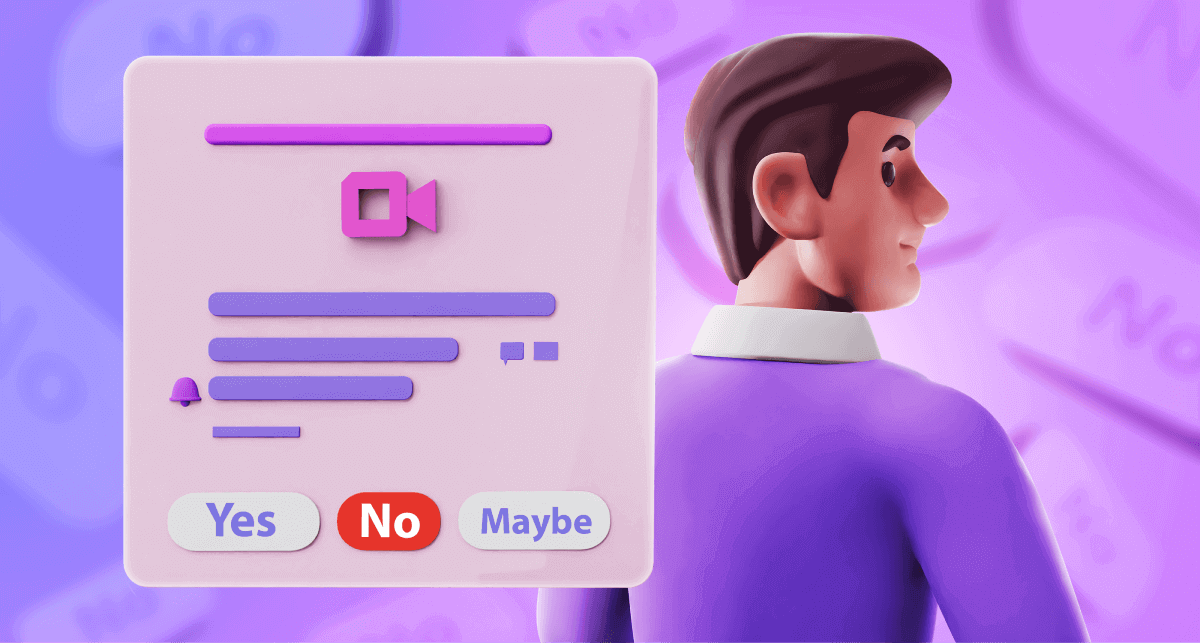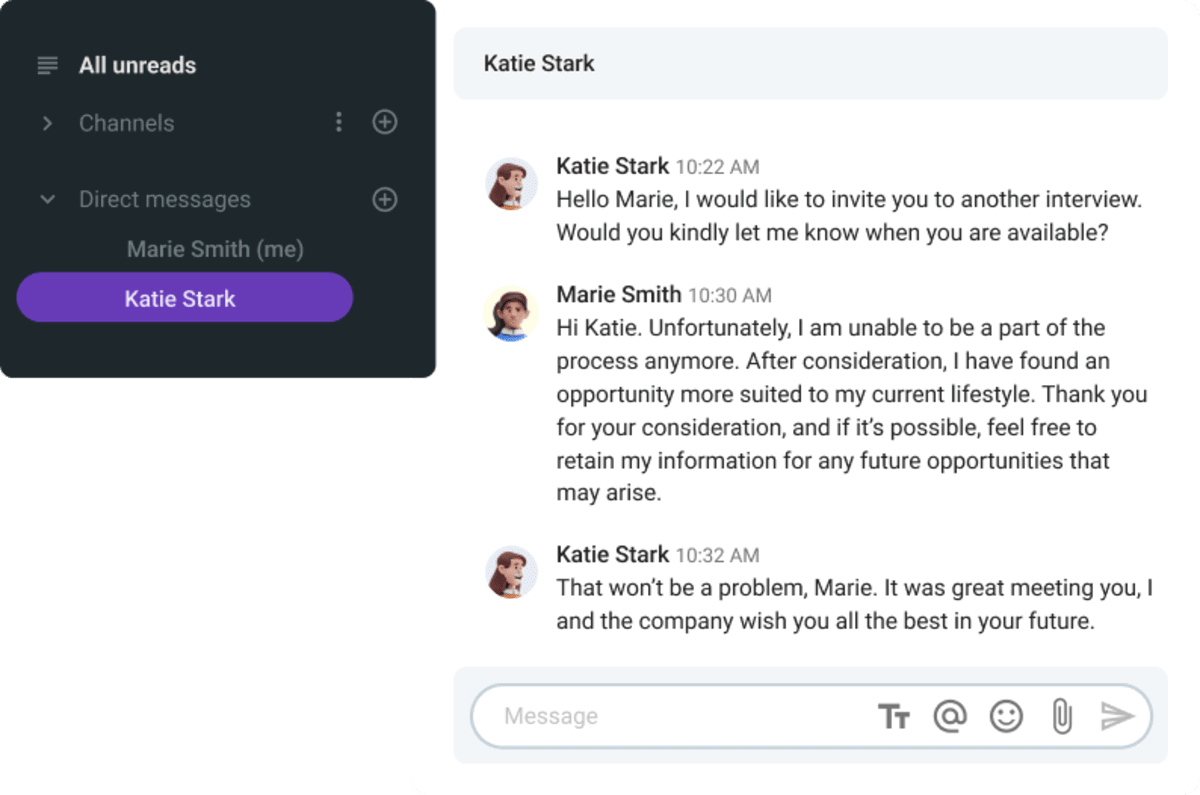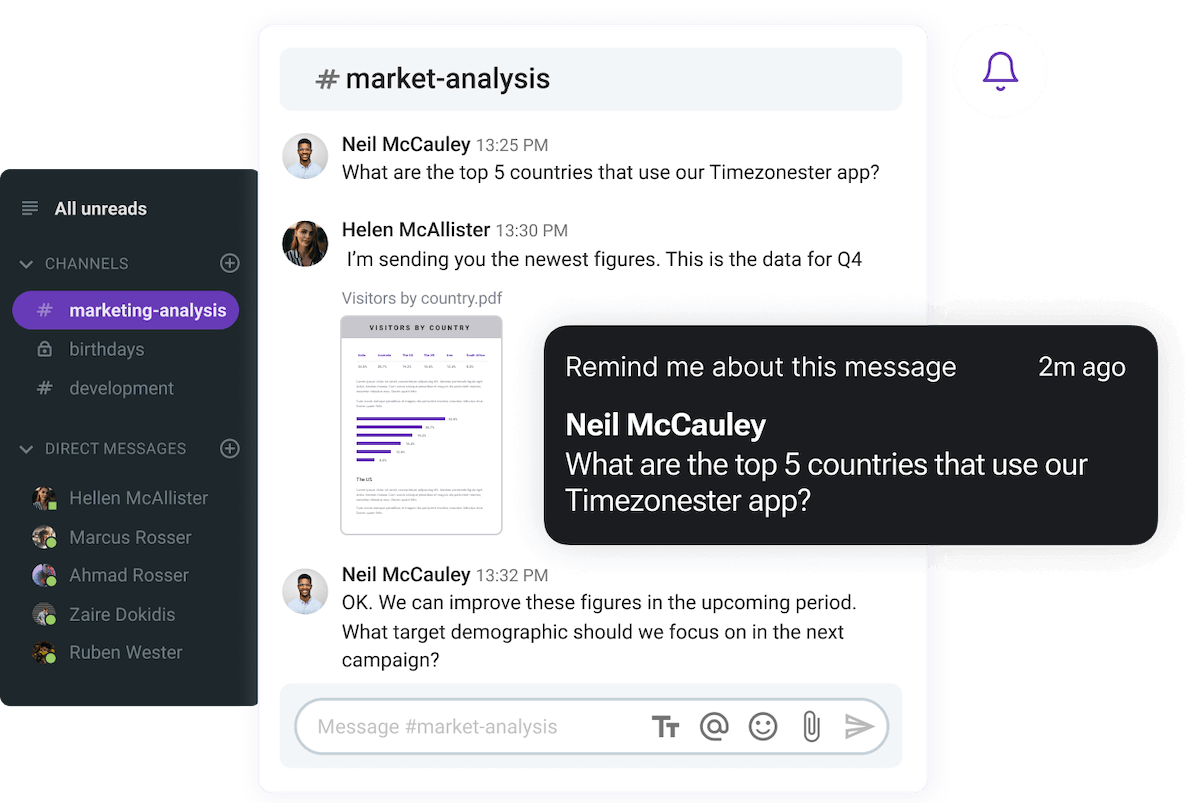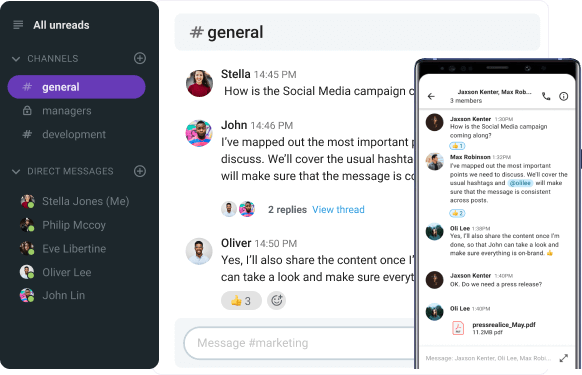The hiring and job-seeking process can be complicated. Multiple authors have highlighted the troubles of Millenials in the ever-growing job fair in the book Recruitment, Retention, and Engagement of Millenial Workforce, such as:
- Millenials want to work for brands that they are consumers of
- Millenials need to learn about the company’s culture far beyond the given job description
- Millenials as a generation have a title of ‘job hoppers’
Times have changed, and we are in the middle of the 4th Industrial revolution. It is difficult to learn how to navigate the workforce. Usually, we are taught to be grateful for every and any opportunity. But, sometimes we are unsure of what we want, or even worse, what we don’t want.
Getting an interview after sending in your resume and waiting days or weeks for a call back can induce all kinds of emotions in you. Usually, those emotions are positive, but what happens when you don’t feel the spark for the job anymore?
In this article, we will focus on the more unfortunate path — how to decline an interview and remain professional.
Let’s learn together how to leave the best impression even when your answer is ‘No’.

Table of Contents
How to decide if you should say ‘No’ to an interview
There is a formula for everything, even how to decline an interview.
But, before we get into the steps that will help you turn down an interview, we should talk about how to decide if you should say ‘No’.
Whether you are just beginning your career and are new to job interviews or you are already quite familiar with the ins and outs of the hiring process, it can be confusing when you have a negative reaction to an interview invitation.
Maybe the company took too long to get back to you, and the initial excitement you had has worn off. Or, you found something better and more aligned with your expectations and hopes.
Whatever it is, keep in mind that declining a job is not the end of the world, and it will not close off all of the doors in your field. On the other hand, it’s good to hold yourself and the companies you want to work for to a standard.
We all want to make an educated decision — one that we won’t regret a few days or weeks after we made it.
So, our advice is research, research, research.
The hiring committee of any company is there to sell you the company, just as much as you are there to sell yourself. So, do yourself a favor, and find out everything you can about them.
Here are a few things to keep in mind:
- Research the financial aspect of the company.
- Get in touch with some of the employees.
- Make sure the company rules align with your values.
- Find out if they are flexible with remote work or working hours.
In the next paragraph, we highlighted a few tips that will help you to decline an interview professionally. Let’s take a look.
6 Simple steps to turn down an interview
We have formulated all of the steps you need to take in order to decline an interview professionally.
It’s a given that we all want to remain respectful, not burn bridges while still giving back negative feedback.
Keep reading to find out how.
Step #1: Consider your situation
As we have said before, think about everything that you are looking for in a company. You can make a list to help you narrow down your choices.
Here are some things to consider:
- Flexible working hours or remote work — Think about your lifestyle and living situation, and make sure the company is well within your reach and you are not sacrificing anything to work there.
- Payment — Research your desired field thoroughly and know in advance what’s the lowest price you will settle for.
- The company’s values — When the company holds the same values as yourself, whether that might be environmental work or charity, getting to work for it is much more satisfying.
- Are their current employees happy? — It’s never a bad thing to reach out to some of the current employees and check if they are happy and respected in the company.
If any of these reasons don’t have satisfying answers, then let’s move on to the second step of how to decline an interview properly.
Step #2: Be certain in your decision
The mind is a fickle thing, so, before you make a big decision like turning down a job opportunity, make sure that you are set in your ways — because there is no wiggle room for you to change your mind.
If you are having trouble deciding, go back a step and re-evaluate.
There is nothing worse than saying ‘No’ initially, then changing your decision.
Usually, there’s no room to go back and say ‘Yes’. Once you say ‘No’, it’s a done deal. The company has moved on to another candidate.
Step #3: Be prompt but not haste in your answer
Hiring managers and recruiters are just as busy as you are. It’s impolite and unprofessional to make someone wait a week or two for your response to an interview, and then for it to be a negative one. That’s not the impression you want to leave.
Let’s break it down. What do we mean when we say ‘be prompt but not haste’?
We have established that answering late to an interview invitation is rude, but you also shouldn’t respond in a matter of minutes, hours, or even one day.
If you are sure that your answer is ‘No’ and you want to decline, you still need to make an impression that you have considered the offer.
Our advice is to wait 2-3 days.
Step #4: Express gratitude
A thank you note at the end of any email is a great idea. But a thank you note to the hiring manager after you have declined their invitation to an interview is an even better one.
Namely, you have to realize that they are deep in the hiring process just as much as you are. So, showing your gratitude for getting selected and considered for the particular job is a great way to end the collaboration on a positive note.
When we treat people professionally and with respect in any situation, we never close those doors all the way.
Expressing gratitude is a small but significant gesture that just might leave the door open for you if a new opportunity rises.
One example is:
“ Thank you for your understanding. I would appreciate it if you retain my information for future opportunities if possible.”
💡 Pumble Pro Tip
If you are not sure how to say ‘thank you’ professionally, check out our blog post on the subject:
Step #5: Explain yourself
There is no need for you to use any excuses — simply explain your situation in a short and sweet manner. Let the hiring manager know what has happened since the last time you spoke. Keep in mind that they are keeping track of candidates and their responses, just as much as you are keeping track of different companies you applied to.
Hence, you should give some explanation, and we do recommend keeping it professional. There’s no need to go into any details. Explain your situation in a direct and informative manner.
For instance:
“I would like to withdraw my application due to an opportunity that is better suited for my current circumstances.”
Step #6: Recommend someone else for the role
This last step is optional. No one is expecting you to do this, but it is highly encouraged.
Oftentimes, the recruiters will ask you themselves if you would like to recommend a colleague with similar qualifications and experience as yourself.
Recommending someone is a nice touch to add to your email when you are declining a job offer. But, remember to not be haste about it — just because it’s a nice touch, it doesn’t mean you can recommend just anyone.
If you would like to do so, do your research and actually recommend someone that might get hired.
What happens after you have declined an interview
The interviewing process is a two-way street. While the company is trying to get to know you and decide if you and your work ethic are the right fit for their team, you should be doing the same.
It’s easy to get lost in the manners and etiquette of the professional world. Maybe that’s why we overthink every step of the hiring process. However, this doesn’t have to be a bad thing — being considerate is a great plus in the business world.
Nevertheless, as we have explained, there comes a time when your answer is ‘No’. So, let’s talk about the consequences of declining an interview.
First of all, you might feel bad or uneasy when declining an interview because we are all led to believe that if we got the interview, we are the chosen one.
Let’s dial down the pressure.
When you are doing rounds of interviews for a company, usually there are other candidates in the running. Whether you were the first or the second choice, you will find out after you have been hired.
So, there is no need to carry any negative thoughts or feelings when declining an interview. The company will appreciate you reaching out with a considerate email, and they will move on to the next candidate they had in mind. The only real consequence of your decision is that now, that job is no longer available to you.
Once you say ‘No’, even in the early stages of the hiring process, there is no going back and you and the company will have to move on.
How not to burn bridges even when you’re saying ‘No’
Saying ‘No’ to anyone or anything usually implies that there will be negative consequences. But that might not be the case all the time.
Yes, you might burn your bridges if you are rude or unprofessional. But when you do it respectfully, the bridge you built will almost always stay intact.
The job market of today is a jungle, to say the least. New rules and procedures for hiring arise almost daily, and sometimes it’s difficult to keep track of everything you need to know.
So, start with the basics. Being polite, respectful, and professional is always the way to go.
We are led to believe that giving back negative feedback is a rude response in itself. Free yourself from this opinion.
There is nothing wrong with saying ‘No’.
Moreover, you will keep the meaningful business relationships you have built if you learn to say ‘No’ thoughtfully. Everyone is connected — so when you are breaking the ice in your desired industry, remember that companies are aware of each other, and they might have shared employees or hiring managers.
The impression you make on your superiors, interviewers, or hiring managers is far more important than what your answer to an interview will be. If you have rudely rejected one company, the others might hear about your behavior and exclude you from their lists of desirable candidates.

How to keep networking after you have rejected an interview
So, you have declined an interview or a job offer. But, how do you keep the contacts you have made for the future, should you need them?
The answer to your question lies in the way you ended things with the interviewer or hiring manager.
If you ‘ghosted’ the company or you have rudely answered their invitation, then it’s safe to say that you no longer have them in your business contact book.
Hence, it all comes back to the way you formed your negative answer. If you go back and consult the steps we have listed, you should have no trouble networking after saying ‘No’.
Just because you didn’t accept their invitation, it doesn’t mean you can’t reach out in the future if you have a question or if they have an opening for a different position.
What happens if you cancel an interview
Most of the time when you cancel an interview — whether it was for personal or professional reasons — it is a done deal. A few, if any, companies would tolerate you changing your mind. If you cancel an interview thinking there were better offers for you out there, but then change your mind, there is no going back.
Everyone is aware that the job market today is complicated, and the research paper The Labor Market in the Digital Age illustrates and examines the state of today’s job market.
For instance, a new industry arose in the last 5 to 10 years, and it changed the supply and demand for different skill sets in employees. Before 2015, companies almost had the same percentage of employees with specialized skills, as well as those with soft skills. Today, the demand for specialized skills, especially in the digital industry has increased up to 53%. The problem that this paper is inspecting has its root in education. The job market is seeking employees with a special set of skills, while education is lacking to keep up with the times.
It should be a given that you are not the only candidate with a certain skillset who got an interview with the company. When you cancel your interview, your slot goes to someone else. So, be sure of your decision and be mindful of the interviewer.
When is it okay to cancel an interview?
What if you have accepted an invitation to the interview, but have changed your mind? Is it okay to cancel?
Yes. If you have changed your mind about the position, and the interview is already scheduled, then you should cancel. Instead of wasting your and the interviewer’s time, canceling an interview is the best solution for both parties.
Canceling an interview for any other reason might be tricky.
Usually, you would have to have a great excuse, such as a personal or medical emergency. If you are canceling an interview because you didn’t manage your time well, that might bring up a few red flags to the interviewer.
Try to cancel your interview at least 24 hours before, but it’s even better if you give the interviewer a few days’ notice.
How to ask to reschedule an interview
Different companies have different policies about rescheduling an interview.
If you are dealing with some unforeseen situations, the best thing to do is to reach out to your interviewer. There is no shame in asking, but do keep in mind that the interviewer might not be so flexible and lenient.
Here are some of our tips on what you can add to your rescheduling email to make it perfect.
Tip #1: Apologize
It is always best to let them know immediately that this scheduling mistake is troubling you too. Open the email with a sweet and short apology before you get into the question you have in mind.
For instance:
“I need to apologize — unfortunately, I won’t be able to meet with you at this time.”
Tip #2: Keep your excuse short and direct
Most of the emails that the recruiters or interviewers receive get skimmed. So, it’s best to keep it short and direct.
Since everyone is usually busy during working hours, you should deliver your excuse in a sentence or two, and still be on point.
To illustrate:
“Due to unexpected circumstances, I won’t be able to attend our meeting.”
Tip #3: Show you value the hiring manager’s time
You probably weren’t the interviewer’s only candidate of the day or the week.
Show them that you value their time and that you appreciate it if they do make time to reschedule your interview.
When you express your gratitude, even if it is in advance, it shows that you are sincere and willing to make up for the lost time.
Here’s an example:
“I understand how valuable your time is, and I would appreciate it if you could reschedule.”
Tip #4: Be available
There is nothing more frustrating to both parties than having to negotiate a new time slot.
So, make yourself available for a timeslot of their choosing. This not only shows remorse on your part but also dedication.
Here’s a path you can take:
“I would like to kindly ask you to reschedule at your earliest convenience. I am available at any time of your choosing.”
Leverage Pumble’s guest access for a smooth interview process
Thanks to Pumble’s guest access, which allows you to invite people from outside of your organization into your workspace, interviewers can invite potential candidates to an interview via video call on Pumble.
Now, if you find yourself having to decline an interview after already being invited into an organization’s Pumble workspace, you can simply DM the interviewers, or post in some of the channels you have permission to access.
What’s more, if you’re unsure whether you can attend an interview or not, you can give yourself some extra time, and set a reminder via Pumble to reach out to the interviewer at the right time and give your answer.

In the great scheme of job searching, not every company you have applied to will be a perfect fit.
Luckily, Pumble is a great fit for any and all organizations — no matter how big or small. Use it to your advantage and let it help you bring your professional communication skills to the next level.




